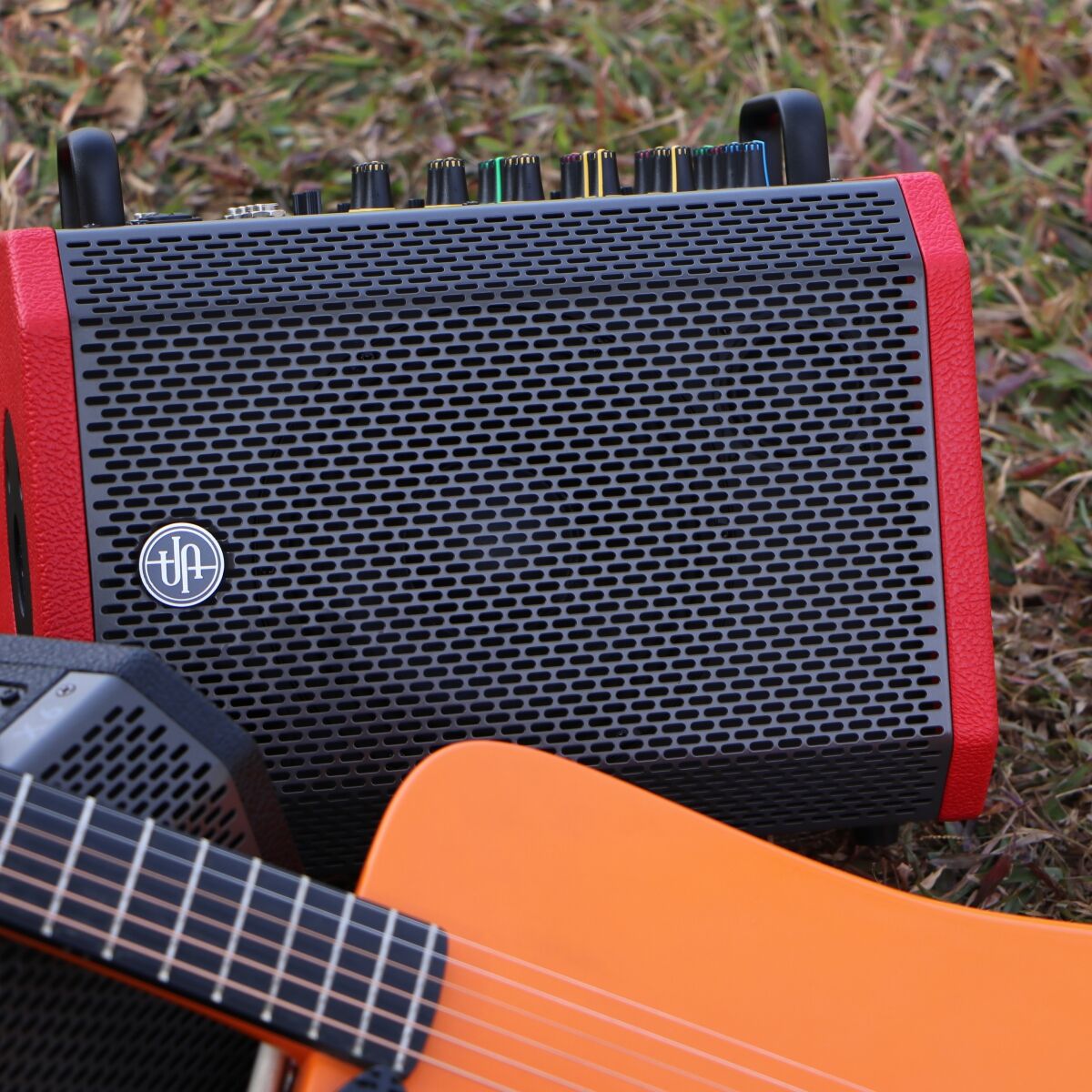Introduction: The Importance of Regular Maintenance
Essential for Longevity and Performance
Like any installed product, the key to your outdoor sound system lasting long and performing perfectly comes down to maintenance. Each of these parts, including speakers and amplifiers, receive a lot of advantage from regular inspections and maintenance. " This not only extends (the life) of the equipment for long-term function, but also makes equipment more proficient over time. Sound industry studies reveal that properly maintained sound systems will last on average 30% longer then those that are ignored, saving owners substantial device replacement and repair costs.
In addition, performance tuning performed during calibration checks can also enhance the quality of audio. By this mean you can keep the audio output crystal clear and prevent it from distortion in long-term usage and also the best RCA tongue ensure you a better audio experience of acoustic. With a proper maintenance schedule in place, your outdoor speakers stay the reliable workhorses they were designed to be and continue to deliver years of enjoyment and performance. By including keywords like "regular maintenance," "audio performance," and "longevity" you can make certain that you experience your home theater at its best, adding quality that goes beyond the plot of any movie.
Weatherproofing Your Outdoor Sound System
Investing in Weather-Resistant Enclosures
Related: Hot audio gear for outdoor speakers Adding weather resistant outdoor speaker enclosures is a must to keep electronic elements like a PVC wireless subwoofer box away from moisture and blowing dust. These enclosures increase your equipment’s longevity and performance by protecting it from severe environmental conditions. Studies have shown that outdoor systems shielded in such weather-proof casements have 50% less of a chance of failing in adverse conditions. Where outdoor sound system users have the edge for this in regular use to guarantee consistent audio performance, rain or shine. Additionally, these protective casings reduce the frequency of repairs and since this eliminates a large deal of cost in repairs, it saves you money in the long run.
Strategic Placement to Minimize Exposure
By positioning the speakers and parts of your outdoor stereo system strategically away from elements such as rain, snow, and direct sunlight, you can reduce exposure to the worst of the weather. Placing speakers in protected areas, or near elements that can act as a natural barrier will prevent deterioration and prolong the life of your gear. And if you angle and raise them off the ground, you can avoid them sitting in water during rainy days. And this is not only keeping your system safe, it also ensures that the sound will not be jeopardized by the weather and you can keep enjoying your outdoor sound system.
Choosing High IP-Rated Components
Choosing high IP rated components is crucial for outdoor speakers since this grade measures how well they can tolerate outdoor factors. Ideally, selecting elements rated at IP65 or better could provide a rugged shield against moisture and dust. Not surprisingly high IP-rated fittings are engineered to withstand adverse weather conditions, and therefore there is less requirement for frequent maintenance. Their design is hardy for the intense swings in weather that your garden furniture will endure, and so it’s a great investment for any outdoor setting. In the present invention these give strength to the system but allow a high sound quality to be maintained despite environmental difficulties.
Routine Cleaning and Debris Management
Safe Techniques for Speaker Cleaning
Caring for your outdoor sound system consists of employing cleaning methods that won't harm your gear. I recommend you to wipe them with soft dry cloths without damaging sensitive parts. You can prevent possible internal damage which may affect the sound if you clean it with water. It's important to keep up regular cleaning because it can keep the speaker working and prevent dust and grime from causing long-term damage.
Preventing Moisture Buildup in Components
It is important to keep outdoor sound systems from suffering excessive moisture in order to ward off electrical shorts and potential equipment ruin. However frequent checks are necessary to see if there is any moisture presence. Silica gel packs in storage can be your greatest friend for their ability to soak up added moisture, especially in the extremes of temperature. This preventive action will preserve the reliability and efficiency of the operating equipment, since moisture is detrimental to the system.
Managing Dust in Hard-to-Reach Areas
Being able to control dust in those hard-to-get places is so important to keep your outdoor sound system in the best shape possible. A jet of compressed air to blow dust away is quite effective and you don't have to take things apart. I do discover that regular removing of dust in less clear areas (for example the lens) adds a lot for keeping the best performance possible. This not only keeps sound quality consistent, but also extends the life of the system to ensure that a little particle will never make a very big issue.
Inspecting Connections and Cable Health
Identifying Corrosion and Wear
Monitoring your cables and connections by visual checks for corrosion and wear is essential in preserving your sound quality. Over time, cables can deteriorate due to exposure to the external environment and might cause audio problems. Oxidized contacts obstruct audio clarity and signal quality. It's important to replace these components asap to save your audio and keep a sound system outdoors that works correctly. Keeping connectors clean and free from corrosion is one of the first steps to maintaining your audio system.
Securing Loose Wiring and Connectors
Poor connections can lead to intermittent audio output or even shorts that can damage your pro audio gear. Fixed wiring using cable ties or clips reduces these dangers. Keep a close eye on these connections and tighten any that appear loose will help to maintain the sound quality and life of the system. By placing emphasis on such maintenance, the audio equipment's performance remains robust and reliable and its useful life will also be longer.
When to Replace Damaged Cables
Knowing when to replace faulty cables is crucial in preserving the operational capabilities of the system. Any wire with damage, such as fraying or excessive wear, should be removed from service to protect the integrity of the system. Cable evaluations should ideally take place once a season at minimum, ensuring that any trouble spots can be rectified before they affect audio quality. By replacing these components in advance, you will enable your speakers to produce the sound quality that you have come to expect from your outdoor sound system all year long.
Optimal Storage Practices for Extreme Conditions
Seasonal Storage Guidelines
With temperatures becoming out of spec for outdoor sound systems, it’s important to store these types of equipment in a temp-controlled environment to avoid humidity and extreme temperatures from ruining the integrity of the products. This gives you even more cushion to accidents. These measures will help protect the unit's audio quality and overall service life as a safeguard against uncontrolled environmental factors.
Protecting Equipment from Temperature Fluctuations
Extreme temperature fluctuations can severely impact sensitive electronic components. It's crucial to maintain a stable environment, ideally using heat-resistant or cooler storage materials during high temperatures. This practice significantly extends the life cycle of the equipment, ensuring consistent performance when conditions become harsher.
Preparing Systems for Winter or Summer
Proper maintenance before winter involves cleaning and inspecting all components for wear that could worsen under cold conditions. In preparation for summer, verifying the weatherproofing and ensuring adequate ventilation are essential to prevent overheating. These seasonal checks contribute to the outdoor sound system's resilience and optimal performance year-round.
FAQ Section
How often should routine maintenance be performed on outdoor sound systems?
Routine maintenance should be performed at least quarterly to ensure optimal performance and longevity of outdoor sound systems.
What is the significance of choosing high IP-rated components?
High IP-rated components offer strong protection against weather and environmental factors, reducing the likelihood of extensive maintenance needs.
How can moisture buildup be prevented in outdoor sound systems?
Moisture buildup can be prevented by regular inspections, using silica gel packs, and ensuring proper storage during adverse weather conditions.
When is the best time to replace damaged cables in sound systems?
Damaged cables should be replaced immediately upon detection to prevent audio issues and maintain system integrity.

